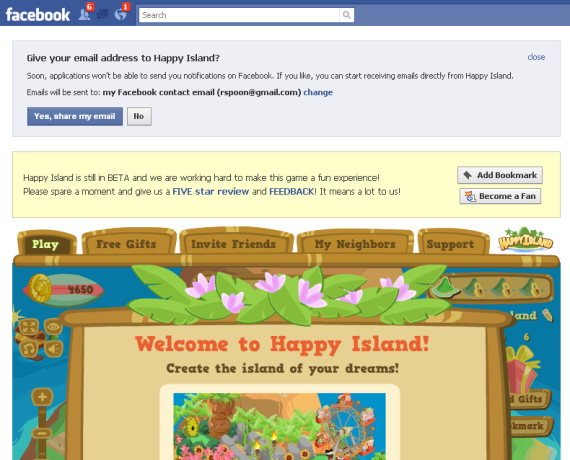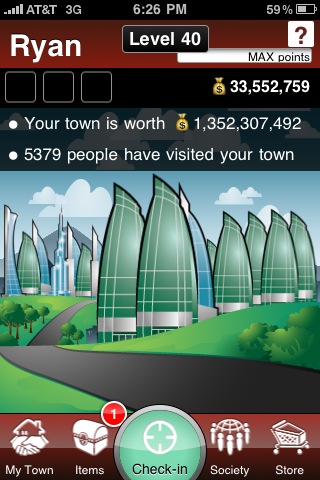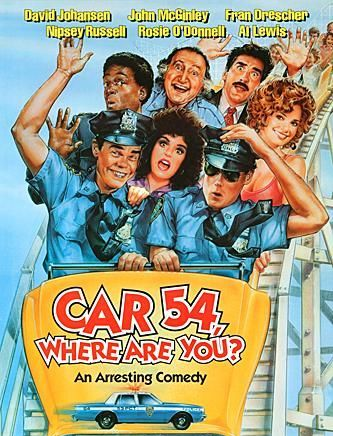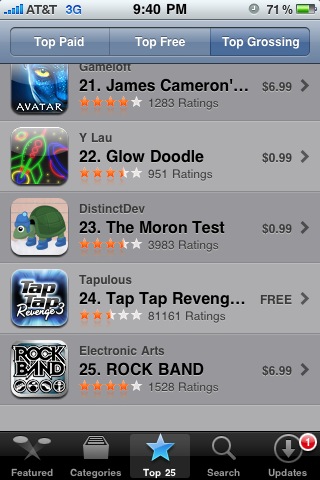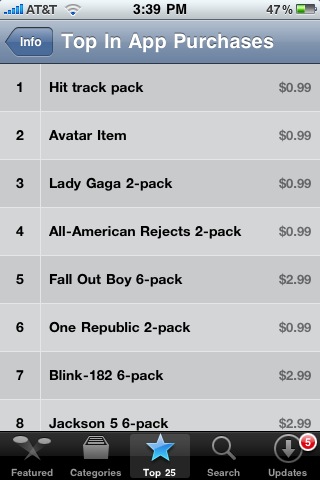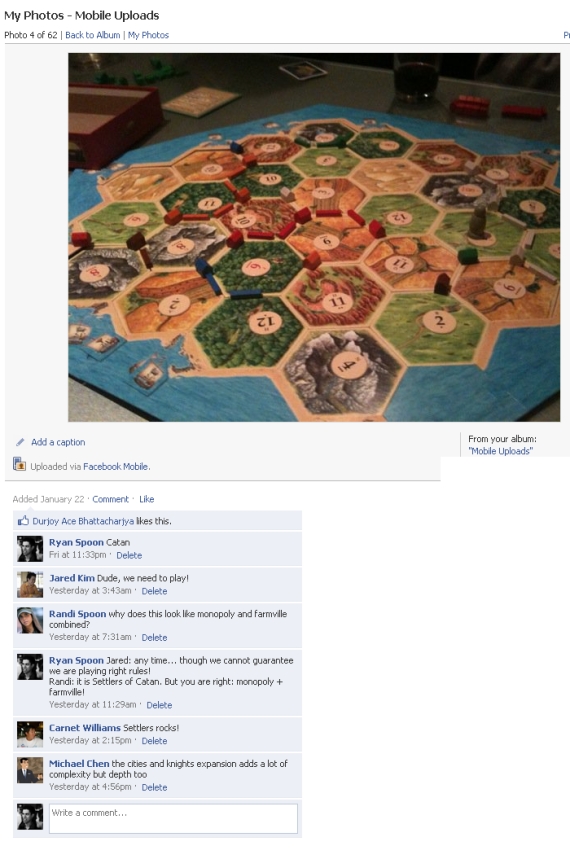MyTown is best described as Zynga meets Foursquare. Take the best aspects of social gaming (Zynga) and combine them with location based networking (Foursquare, Gowalla, Yelp) and you have MyTown: a game that awards points based on live social game mechanics built atop location-based check ins.
You can own real properties (akin to being the mayor) and then collect rent (similar to Mafia Wars, Farmville) based on popularity and live activity (again like Foursquare).
MyTown's point structure is particularly clever and powerful because it creates an incentive structure predicated on routine usage and social sharing. Two great examples that were perfected by Zynga:
1. Deprecation. Farmville is the master of this: because rents cap out at a specific amount, users must collect rent regularly (ie hourly) to maximize potential revenues. As a proxy, if you do not return to harvest your crops in Farmville, they actually deprecate.
2. Social Sharing. Check-ins are rewarded with points (ie 150 points). But large bounties are provided for social actions like: connecting the MyTown account to Facebook Connect, broadcasting your location via Facebook and/or Twitter, and adding commentary on the location.

Below is a strategy to MyTown from town billionaire Kirk Nguyen. Fascinating stuff:
Try to maximize your points payload with multipliers. It's a combination of using multiple multipliers, obtaining the multipliers that yield the most return, and holding out until your base check-in worth is substantial enough (think long-run diminishing returns).
Upgrade as soon as you can, but it starts to get costly after level 5 or 6. Once the upgrade cost got to $7+ million, I bought free upgrade power-ups to maintain my cash for purchasing properties padding my towns total worth.
Finally, keep an eye on trending, number of owners, and popularity - ESPECIALLY popularity: it determines the maximum property value and maximum rent cap.
And if you want to stay on top of the leaderboards for your properties (and other non-owned properties), only keep local properties in your stable. I was in SF last night and bought some high-value properties, but then realized that I couldn't buffer my leaderboard weight for them when I got back into San Jose. I'll probably sell them sometime soon. Oh well, see ya Adidas Concept Store!
All in all, I try for check-ins worth between 45k-60k points, single-ownership of long-lasting, high-popularity businesses, and I collect all 20 of my level 11 property rents with one click.
Once you start rollin', you'll see how ingenious Booyah!'s micro-transaction business is. They made it very accessible and compelling.
My town is worth $2.5 billion, but I feel I could be doing better.
Good luck and happy hunting!
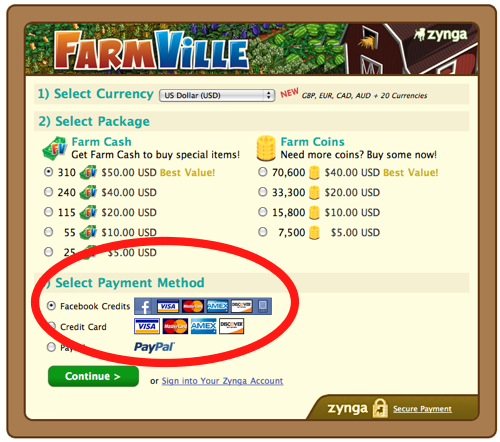


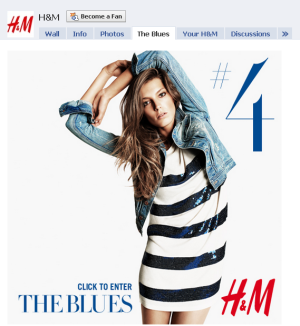
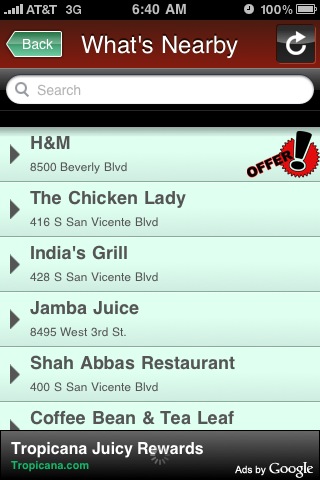 2. Once you check-in, you can get discounts and dynamic ads:
2. Once you check-in, you can get discounts and dynamic ads: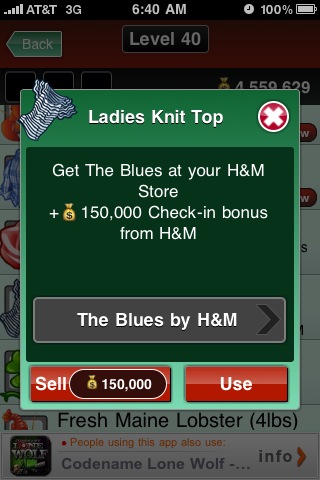




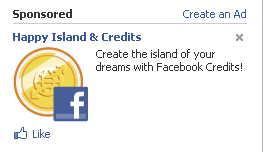 When you click through, you land directly on the Happy Island page and realize how hard developers must fight for user actions. Much of the viewable screen is taken over by a request for your email address and then for a positive review (particularly common in iPhone Apps). Considering Happy Island has 12,000,000+ actives, you have to believe they are savvy enough to have determined that these placements are more effective upfront than after a player has become engaged in the game:
When you click through, you land directly on the Happy Island page and realize how hard developers must fight for user actions. Much of the viewable screen is taken over by a request for your email address and then for a positive review (particularly common in iPhone Apps). Considering Happy Island has 12,000,000+ actives, you have to believe they are savvy enough to have determined that these placements are more effective upfront than after a player has become engaged in the game: